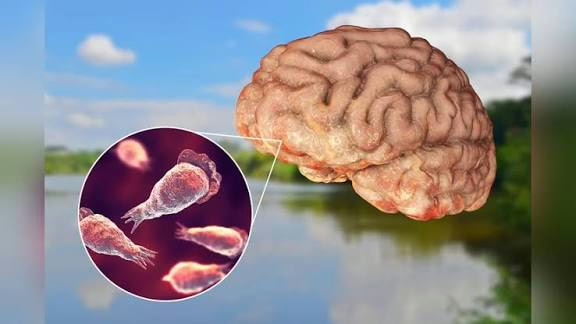Health officials in India have raised urgent warnings following a notable increase in infections caused by Naegleria fowleri, a rare but lethal amoeba commonly known as the “brain-eating” amoeba, with the southern state of Kerala experiencing the most significant impact.
Although the total number of cases remains relatively limited, the incidence has doubled compared to the previous year, triggering immediate public health interventions. In 2025 alone, Kerala has documented 72 confirmed infections and 19 deaths, with September witnessing a particularly sharp surge-24 new cases and nine fatalities.
Dr. Altaf Ali, part of the state’s dedicated task force addressing the outbreak, expressed concern over the widespread nature of the infections this year. “Unlike previous years where cases were confined to specific areas, we are now seeing new infections emerging throughout the entire state,” he explained.
In response, authorities have initiated an extensive testing program. “Our efforts focus on large-scale screening across Kerala to identify and manage cases promptly,” Dr. Ali informed the press.
Naegleria fowleri thrives in warm freshwater environments such as ponds, lakes, and slow-moving rivers. Infection occurs when contaminated water enters the nasal passages, typically during activities like swimming or bathing. Importantly, the amoeba does not transmit from one person to another.
Related: Katsina bandit leader releases 28 hostages following peace talks with government representatives
Once the amoeba infiltrates the nasal cavity, it can migrate to the brain, causing primary amoebic meningoencephalitis (PAM), a condition with an alarmingly high mortality rate.
The US Centers for Disease Control and Prevention (CDC) describes Naegleria fowleri as a “brain-eating amoeba” due to its ability to invade and destroy brain tissue. The CDC emphasizes that while infections are extremely rare, they are almost always fatal.
Initial symptoms often include headache, fever, and nausea, quickly escalating to severe neurological complications. The World Health Organization highlights that the disease frequently results in seizures, confusion, hallucinations, and coma.
Though uncommon worldwide, PAM is deadly. Since its first identification in 1962, nearly 500 cases have been reported globally, predominantly in countries such as the United States, India, Pakistan, and Australia.
Kerala recorded 36 cases and nine deaths last year, figures that have now been exceeded, intensifying concerns among healthcare providers and the general population.
























